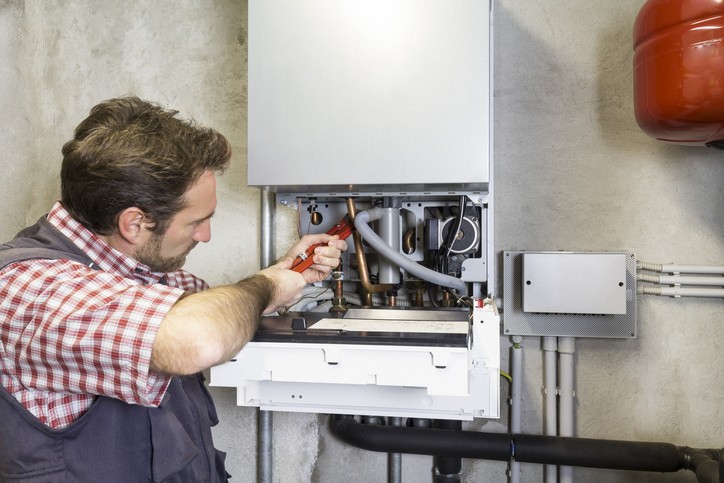A functional water heater is essential for daily comfort, but when it malfunctions, it can lead to increased energy use and water waste. Many homeowners overlook small issues until they escalate, causing higher utility bills and unnecessary environmental impact. By addressing water heater restorations promptly, you can enhance efficiency, reduce waste, and contribute to a more sustainable home. In this article, we explore how timely water heater repairs support energy conservation, water preservation, and overall environmental sustainability.
1. Reducing Energy Consumption
A malfunctioning water heater often struggles to maintain an optimal temperature, leading to excessive energy consumption. Issues such as sediment buildup, faulty thermostats, or broken heating elements force the unit to work harder, increasing electricity or gas usage. Repairing these problems ensures the heater operates efficiently, reducing your carbon footprint and lowering energy costs.
Regular maintenance, such as flushing out sediment and replacing worn-out components, can restore efficiency. By keeping your water heater in optimal condition, you help minimize the amount of energy required to heat water, which supports sustainability efforts and decreases dependence on fossil fuels.
2. Conserving Water
A leaking or inefficient water heater can lead to unnecessary water wastage. Even a small leak can waste hundreds of gallons of water over time. Additionally, if your heater takes longer to heat water due to internal issues, you may run taps longer while waiting for hot water, further increasing water consumption.
Prompt repairs prevent leaks and inefficiencies, ensuring that water is used more effectively in your household. A well-maintained water heater provides hot water faster, reducing the amount of wasted water and promoting conservation efforts.
3. Extending the Lifespan of Your Water Heater
Neglecting small issues in a water heater can lead to premature failure, requiring full replacement sooner than necessary. Manufacturing new water heaters consumes natural resources and energy, contributing to environmental degradation. By repairing and maintaining your unit, you can extend its lifespan, reducing the need for frequent replacements and minimizing waste.
Replacing worn-out parts, such as heating elements or pressure relief valves, can keep your heater functioning efficiently for years. This not only saves money but also reduces the demand for new appliances, supporting a more sustainable lifestyle.
4. Lowering Greenhouse Gas Emissions
Gas-powered water heaters emit carbon dioxide, contributing to greenhouse gas emissions. When a water heater is inefficient, it burns more fuel to maintain performance, increasing emissions. Regular repairs ensure that the unit operates at peak efficiency, reducing the amount of fuel burned and minimizing your home’s carbon footprint.
Inefficiencies in electric water heaters mean more electricity consumption, which, depending on the energy source, can increase reliance on non-renewable resources. Keeping your heater in top shape ensures it uses the least amount of energy necessary to provide hot water, reducing environmental harm.
5. Enhancing Indoor Air Quality and Safety
A malfunctioning water heater can pose safety risks, including gas leaks, carbon monoxide exposure, and excessive humidity levels. Gas leaks and carbon monoxide emissions from faulty gas-powered units are hazardous to both health and the environment. Additionally, excessive humidity caused by leaks can lead to mold growth, impacting indoor air quality.
Timely repairs prevent these issues, creating a safer and healthier home environment. Regular inspections and maintenance also ensure that venting systems function correctly, reducing potential hazards and supporting overall sustainability.
6. Reducing Waste Through Proper Disposal and Recycling
When a water heater fails prematurely, it often ends up in landfills, contributing to environmental pollution. Repairing your water heater instead of replacing it extends its lifespan and reduces waste. If replacement is necessary, proper disposal and recycling of old units help minimize environmental impact.
Many components of a water heater, including metal parts and insulation, can be recycled. Choosing repair and responsible disposal options ensures that fewer materials end up in landfills, aligning with sustainable living practices.
7. Supporting Renewable Energy Integration
A well-maintained water heater is more compatible with renewable energy systems, such as solar water heaters or energy-efficient heat pump systems. If your current water heater is in good condition, it can be adapted to work with sustainable energy sources, reducing reliance on traditional energy grids.
By ensuring your water heater remains in excellent condition, you can easily transition to greener alternatives in the future. Repairing instead of replacing also provides time to explore energy-efficient upgrades when needed.
Water heater repair plays a crucial role in promoting sustainability. By reducing energy consumption, conserving water, extending the lifespan of appliances, and lowering greenhouse gas emissions, timely repairs contribute to a more eco-friendly home. Regular maintenance ensures safety, enhances efficiency, and supports waste reduction efforts. Prioritizing water heater service is a simple yet effective way to adopt a greener lifestyle.
Optimize your home’s efficiency with expert water heater repair from Plomero en Phoenix. Reduce energy waste and stay eco-friendly! Contact us now at (602) 730-4663 for reliable service.



